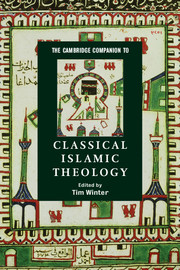Introduction
Published online by Cambridge University Press: 28 June 2008
Summary
This volume presents a series of critical scholarly reflections on the evolution and major themes of pre-modern Muslim theology. Given Islam's salience in religious history and its role as final religious inheritor of the legacies of monotheism and classical antiquity, such a collection hardly needs justification. The significance of Islamic theology reflects the significance of Islam as a central part of the monotheistic project as a whole, to which it brings a distinctive approach and style, and a range of solutions which are of abiding interest.
Despite this importance it is fair to say that until recently the study of theology was something of a Cinderella subject within Islamic studies, particularly in the Anglo-Saxon world. In part this flowed from the persistence of nineteenth-century assumptions about the marginality of abstract intellectual life in Islam, and about the greater intrinsic interest and originality of Muslim law and mysticism. It was also commonly thought that where formal metaphysics was cultivated in Islamic civilisation, this was done seriously only in the context of Arabic philosophy (falsafa), where it was not obstructed by futile scriptural controls, and where it could perform its most significant function, which was believed to be the transmission of Greek thought to Europe.
- Type
- Chapter
- Information
- Publisher: Cambridge University PressPrint publication year: 2008
- 5
- Cited by



